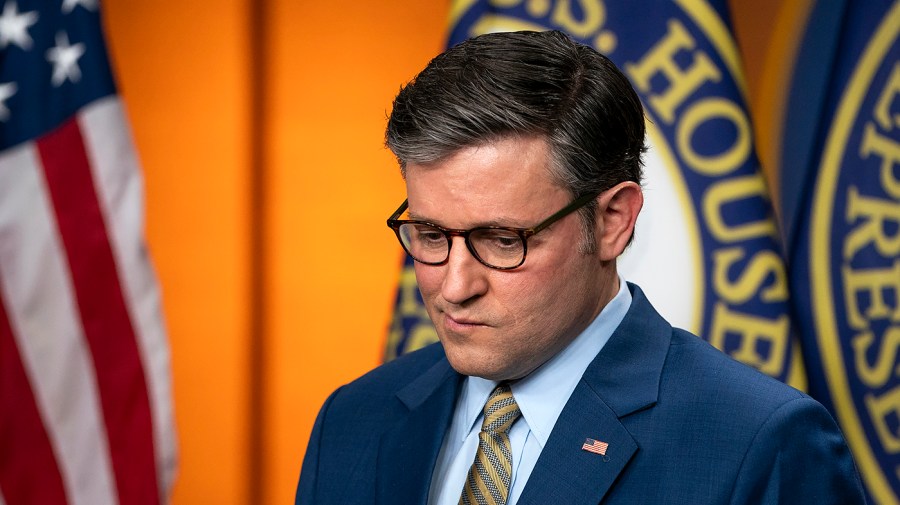
The House on Thursday torpedoed Speaker Mike Johnson’s (R-La.) plan B to avert a government shutdown and suspend the debt limit, dealing a blow to the GOP leader and catapulting the conference back to square one as it stares down Friday’s funding deadline.
The measure — which Johnson rolled out hours roughly three hours before the vote — failed to clear the chamber in a 174-235-1 vote, falling short of the two-thirds threshold needed for passage under the fast-track suspension of the rules process.
The bill met its demise after Democrats — led by Minority Leader Hakeem Jeffries (N.Y.), who called the legislation “laughable” — and a handful of conservative Republicans came out against the legislation, largely over the inclusion of a two-year suspension of the debt limit, which was a demand made by President-elect Trump.
It remains unclear what path Johnson pursues next. Given the Republican opposition, the bill is unlikely to pass in the slim GOP majority if Johnson attempts to another vote it through a longer regular rule process that requires just a simple majority.
After the vote, House Majority Leader Steve Scalise (R-La.) said leadership did not plan to send the bill to the Rules Committee.
Speaking to reporters as the vote occurred, Johnson did not say what the next step will be.
The clock, however, is ticking: If Congress does not approve any legislation by 11:59 p.m. on Friday, the government will shut down.
The unsuccessful vote deals a blow to Johnson, who is scrambling to avert a shutdown by the looming deadline — and keep his grasp of the gavel come next year — and to Trump, who endorsed the package after torpedoing the Speaker’s initial proposal.
Johnson rolled out the plan B Thursday afternoon after hours of closed-door meetings with an ideologically diverse array of House Republicans. The proposal would have kept the government funded at current levels through March 14, suspended the debt limit for two years and appropriated roughly $100 billion in disaster relief and about $10 billion for farmer economic assistance, while stripping away a number of policy provisions that were in an original 1,500-page deal.
Trump quickly backed the package, calling it “a very good Deal for the American people” and urging lawmakers to support it.
But a handful of Republicans rejected that call almost immediately, hammering away at the legislation.
“More debt. More government. Increasing the Credit Card $4 trillion with ZERO spending restraint and cuts. HARD NO,” Rep. Chip Roy (R-Texas), a member of the conservative House Freedom Caucus, wrote on X.
Democrats also came out against the legislation in droves. During a closed-door House Democratic Caucus meeting after the bill’s rollout, lawmakers were heard chanting “hell no.”
Thursday’s proceedings mark the latest twist in this week’s government funding debacle, which began after congressional negotiators rolled out a stopgap, heated up when Republicans of all stripes came out against the measure, and reached a fever pitch after Trump came out against the bipartisan bill, tanking its prospects of clearing the chamber.
The series of events sent Republicans back to square one, huddling in Johnson’s office for hours trying to come up with an alternative plan. Vice President-elect JD Vance joined those talks at various points.
The initial funding plan, which was crafted by congressional negotiators, would have funded the government at current levels through March 14, extended the farm bill for one year and appropriated roughly $100 billion in disaster relief and $10 billion in economic assistance for farmers, among other authorizations.
Johnson, however, never put that legislation on the floor after Trump, his allies and a large number of Republicans said they would oppose it.
Trump’s demand to lift the debt limit hurled an eleventh-hour curveball into government funding talks, inserting the issue — which typically requires painstaking and lengthy negotiations — into the discussions with just hours to go until the funding deadline.
Congress is expected to have to act on the debt by at least mid-2025. But Trump on Wednesday expressed concern about Democrats using the must-pass issue as a leverage point, calling it a “TRAP” at one point.












